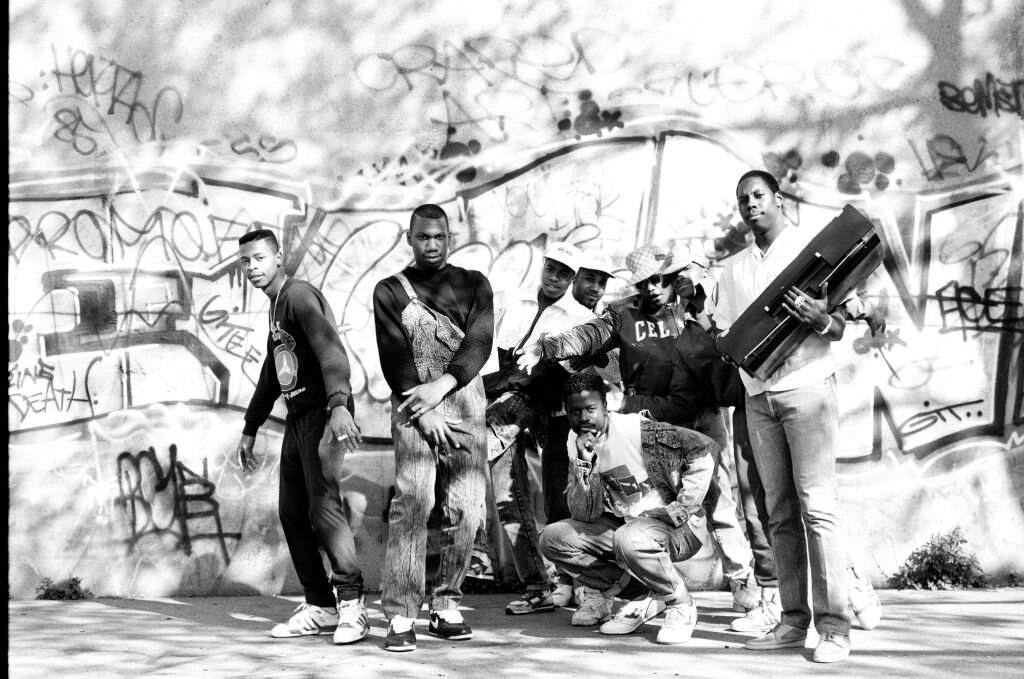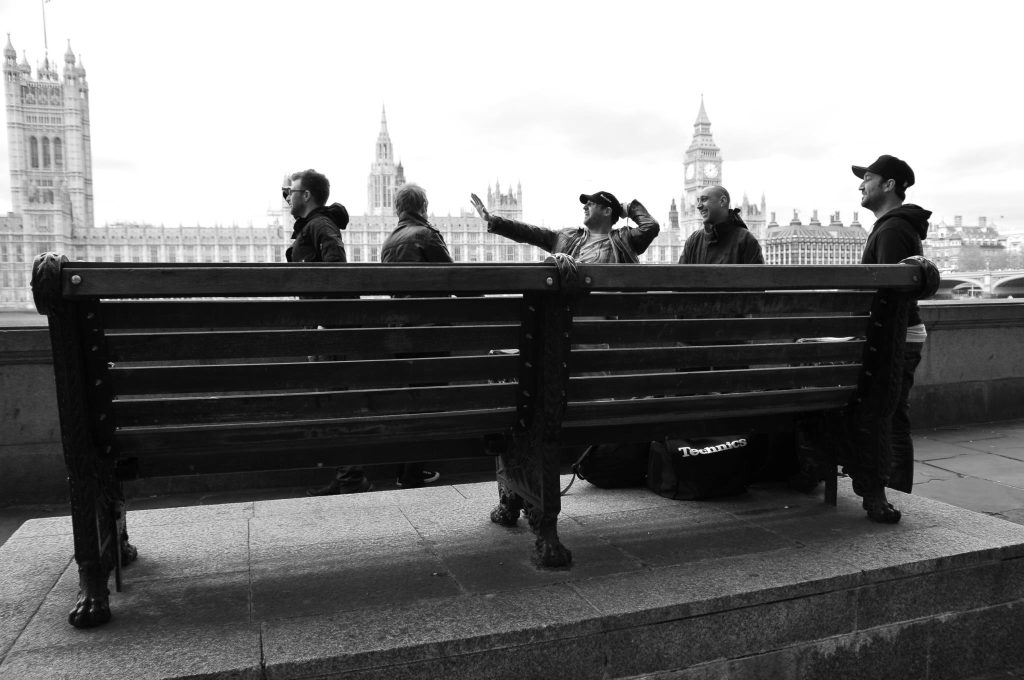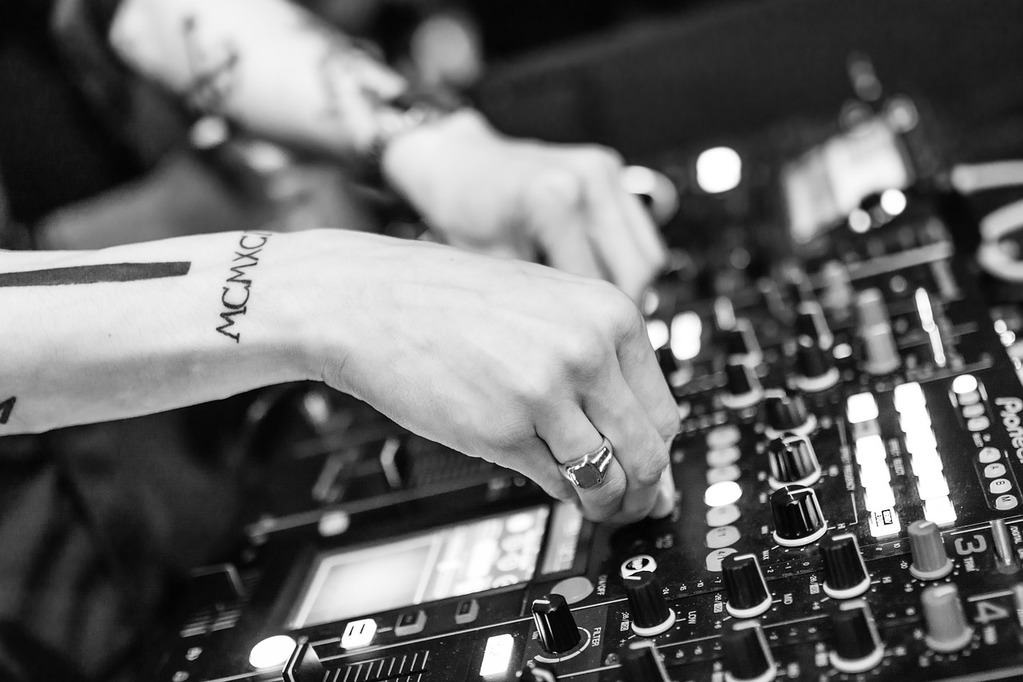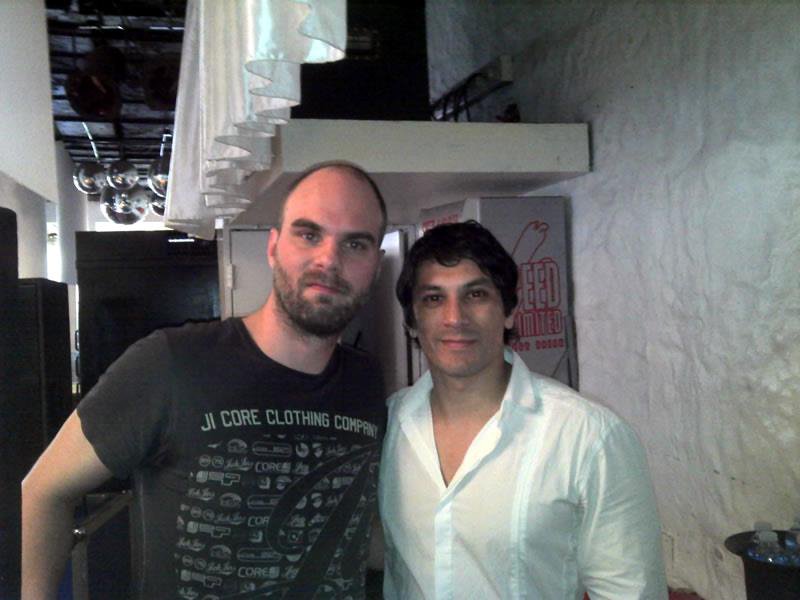
We caught up with the co-founder of Golden Wings Music (GWM) Walter Gutierrez to celebrate our 10th birthday along with an exclusive mix. GWM, spearheaded by WCross, originated from the famed GWM Radio and has since become a beacon for high-quality Progressive House music on a global scale.
The journey of Golden Wings Radio began humbly in WCross’s kitchen, evolving steadily into a professional entity. It welcomed its first guest, Denis A, in August 2011. To reach broader audiences, WCross transitioned to Innervisions Radio in the UK. The growth of GWM has been significantly powered by the partnership of two close friends: Arturo Mercado, who cemented the brand’s presence in Mexico, and Iván Castro, who expertly managed its daily operations from Germany.
GWM’s distinctive approach and dedication to excellence have attracted artists from prestigious platforms such as Proton and Frisky. As WCross proudly mentions, “Everyone who plays on the station does it with respect and love,” highlighting the passion and commitment that set GWM apart in the music industry.”
Golden Wings Radio famously started in your kitchen (we all know the best ideas and parties happen there), as a true passion project. What kind of challenges did you face in getting it off the ground, and how did you manage to grow it into the influential platform it is today?
Thank you for this interview. It’s important for me and the team I represent to be able to share our story in a respected publication like Decoded Magazine, where so many significant figures from our scene have appeared and been featured. As you mentioned, the story is real. Golden Wings Music Radio (GWM) began broadcasting from a small table in my kitchen.
In 2013, CID INC and Scotty.A each stayed with me for 15 days after performing at a GWM party. They wanted to visit the radio’s studio. I laughed and said, “What studio?” Everything they saw was operated from my home. I showed them my table, covered with stickers, notes, dates, and future guests’ names, along with a whiteboard I used as a schedule for shows. They couldn’t believe it. Now, looking back with a professional, dedicated studio, it makes me smile and feel nostalgic about those days.
While I cooked for them, they watched me design e-flyers and run the radio. We’d listen together to mixes sent in by artists who wanted to be part of the programming. While they stayed with me, they helped define the mix quality that would air on the station. It was fun, and I learned a lot.
Golden Wings grew organically, and the final product was always professional and polished. Henri (CID INC) and Scott expected a team production, with employees, radio programmers, and designers. But seeing how I did it, they kept supporting me because GWM was functioning on a large scale—attracting followers, setting trends, introducing new DJs and producers, and allowing them to share the lineup and e-flyers with world-famous artists like Sasha, Rodriguez Jr, Riva Starr, Danny Howells, Guy Gerber, and more.
We hosted popular shows like Tronic Radio (Christian Smith), Suara (Coyu), Renaissance, Radio Therapy (Dave Seaman), Perspectives (Darin Epsilon), and many others. Having these artists drew others to want to be part of our lineup. Many who are now well-known in the industry, like Brian Cid, Simos Tagias, Silinder, East Cafe, Nikko.Z, Dale Middleton, and more, first had their music broadcasted on Golden Wings.
As for the challenges, the main one was overcoming the fear of rejection—and learning to say no myself, without coming across as arrogant or hostile. I had to manage my ego and that of many artists, understand how the industry works, and even more challenging, figure out what to do when prominent figures in our scene said yes. It’s stressful to ensure everything runs smoothly—from the radio sound, server reliability, and software, to ensuring the art resonates with listeners.
Another challenge was realizing that artists aren’t necessarily loyal—they’ll often move on to other stations. Sometimes, artists who requested airtime for months would leave for other stations after finally securing a slot. And one of the most significant challenges was recognizing that I was on my own and responsible for everything, even the smallest detail. In a close-knit industry, where everyone knows each other, people can be very supportive when things are going well, but it can also be brutal. They don’t always realize the power of their vote—or their veto.
[embedded content]
Over time, with a lot of hard work, GWM became a recognized brand synonymous with quality. Even if someone didn’t want to broadcast on my station, they knew what GWM was about. Our programming stood out from other stations with unique features we continue to offer, like being free for listeners, and airing DJs and producers at the prime time for their country, so they can interact with their fans live.
Launching GWM gave me several advantages as an Argentine radio station—it was the only station exclusively dedicated to our genre with the world’s top DJs. Argentina has always had a strong global presence, with a fanatical audience that understands electronic music, especially the progressive style, thanks to the influence of Hernán Cattaneo.
Almost all artists loved the idea of finding a new way to reach Argentine audiences, and GWM was a showcase for their talent, opening doors to perform in Argentina. Another success was designing e-flyers that gave each artist—from Sasha to lesser-known underground DJs—an individualized promotion, something other stations weren’t doing. I remember when Sasha aired on my station, and a listener posted a photo from Tomorrowland, saying he was listening to Sasha from the festival. Our listeners often shared these kinds of beautiful gestures, sending photos of their laptops or phones tuned into the station. It was amazing.
It was a huge amount of work, but it all paid off when artists shared their experience of airing on GWM and the live connection with listeners. I kept a close eye on what happened and what people wanted from the brand.
Over time, two close friends joined me, strengthening GWM’s growth. Arturo Mercado, a DJ and producer from Mexico, helped establish the brand in the Mexican scene, hosting events and bringing progressive Latin and Central American artists to the station. Then there was Iván Castro—now my partner in GWM—a Colombian DJ living in Germany. He’s a programmer and the reason the station airs daily. Iván had his own show on GWM and offered help with web programming, app design, and technical maintenance. His show, Introspectives, featured artists like Patrice Bäumel, Roy Rosenfeld, and Olaf Stuut.
Together, we grew GWM, and soon artists who previously broadcasted on Proton and Frisky wanted to have their shows on GWM. It transformed from a hobby I created to broadcast my mixes into a major responsibility. When someone shares their music, it’s an act of love for their craft. They put their trust in us, sharing their work, reputation, and brand with us. The reason we’ve been able to return with more strength is that we’ve always respected that.
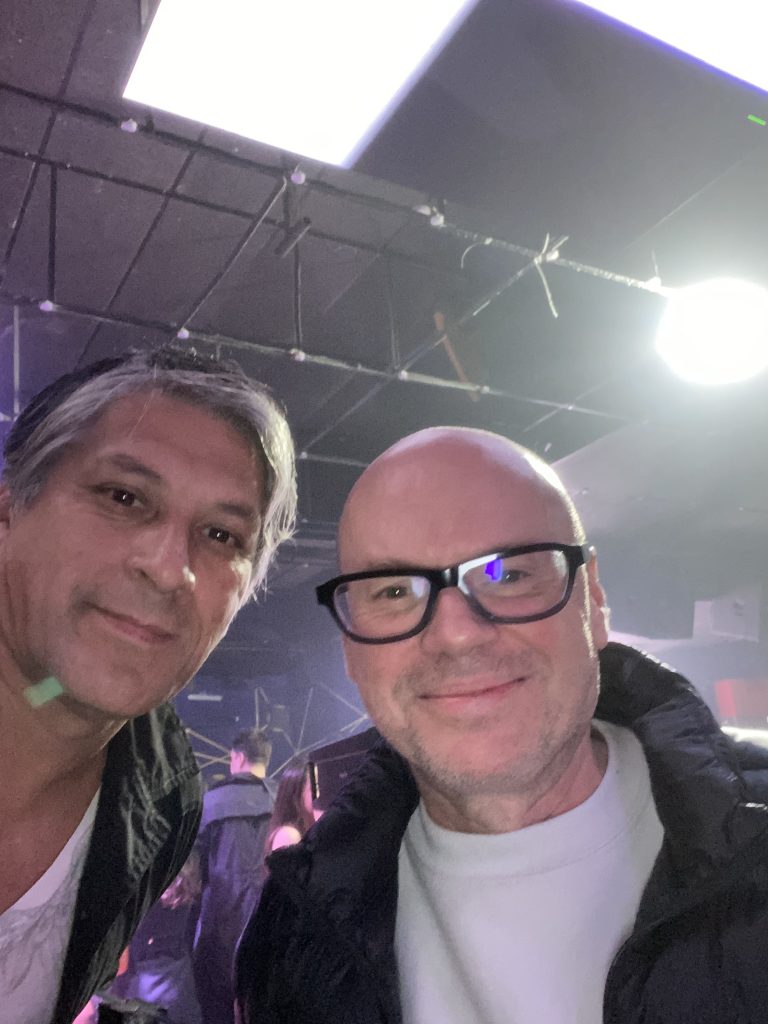
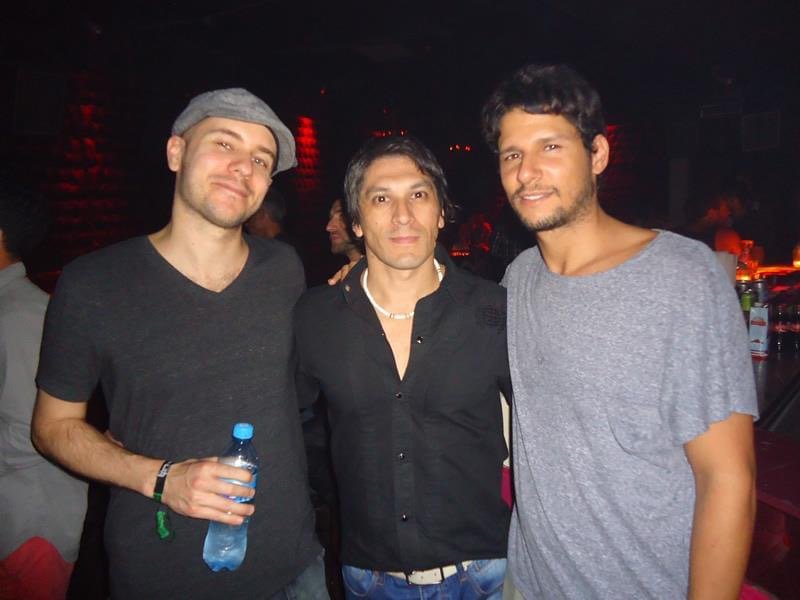
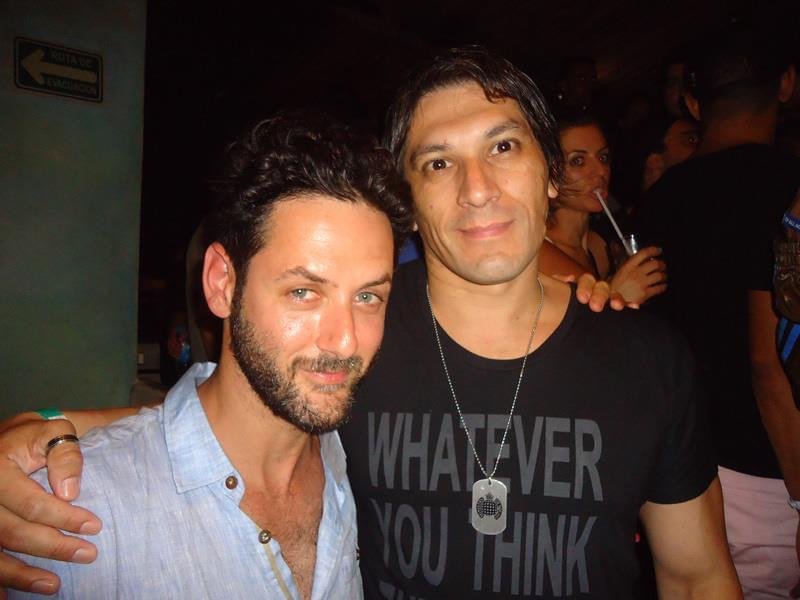
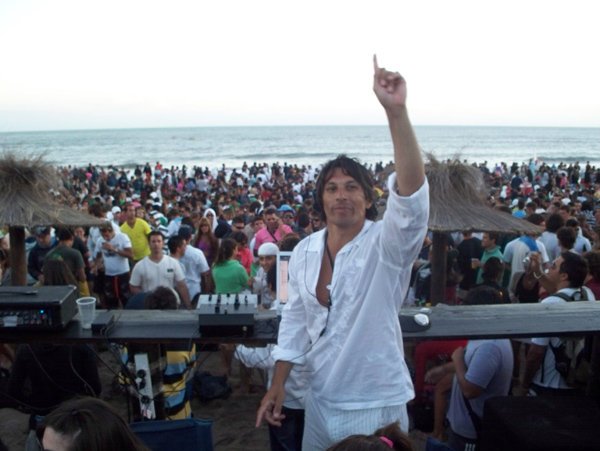
Did Golden Wings Radio achieve financial success from the start, or did you go through some tough times? How challenging was it to get people to invest in the brand and the station in the beginning?
In 2012, I launched the station with a clear vision and goal: to get my name out there as a DJ and feature the best in our scene. I wasn’t focused on monetizing it at all—it never brought in any income, except for one single dollar donated via PayPal. It was always funded from my own pocket, and every sponsor I had came through service exchanges.
Even the Golden Wings parties I organized, where DJs like DAVI, CID INC, Marc Poppcke, Rich Curtis, Ioan Gamboa, Scotty.A, Nikko.Z, Derek Howell, Mike Griego, Kevin Di Serna, Juan Demenicis, Marcelo Vasami, and Sound Process performed, were all about building and establishing my brand. It was actually cheaper to throw a party, even if it didn’t generate much revenue, than to run a global marketing campaign. Back then, fans shared the content that artists posted on Facebook like crazy. There was no Instagram.
When a DJ or producer would post on their page that they were playing in Argentina at one of my events, it was great for GWM because it caught the eyes of artists, labels, brands, and the audience. There weren’t as many social networks as there are today, so everything was more centralized, without having to compete with so many other channels of communication. As a result, many top promoters and artists started reaching out to play at my events, and others even recommended artists to me—like when Hernán Cattaneo suggested Rich Curtis in 2013. And if the maestro recommended him, it had to be done!
Speaking of rejection, how hard was it to face it when you were sending your mixes to other radio stations? Did that experience inspire you to create your own station?
Before enjoying the success that GWM had in its first stage—and continues to have today—I went through plenty of frustration and anger. I wanted my mixes to be played on major radio stations but had no idea how to break through. I’d spend hours perfecting my mixes and downloading music, just like thousands of DJs around the world. But when I’d send those mixes to the top stations at the time, they wouldn’t even reply to my emails. That left a mark on me.
So, I changed my strategy and started with smaller stations. I remember the owner of Xelestia Radio (Puerto Vallarta, Mexico) heard one of my sets that I posted on Facebook and invited me to play on his station, even though it wasn’t electronic music-based. He liked it and offered me a monthly spot, and that’s how Golden Wings by WCross began. The name Golden Wings came from a listener’s comment on that same set: “You make me fly like Golden Wings.”
I asked for a two-hour slot to play my exclusive mix along with one from a guest DJ. Within a few months, thanks to the number of artists who wanted to join and the program’s success, we covered 70% of Xelestia’s schedule. We had a solid audience because it was unique for a Mexican station, not even fully electronic, to feature artists like Armin Van Buuren, DAVI, DENIS A, and Robert Babicz. Plus, it stirred curiosity—“Who is WCross?” (my alias).
On Xelestia, fans could listen to entire sets from their favorite artists for free, and download them from the website and SoundCloud. After a while, I felt the need to grow further and moved to Innervisions Radio (UK), run by Gary Harkin, where I could develop the concept I envisioned for my WCross brand. Artists like David Grahna, Marc Marzenit, and Henry Saiz all played on the show. The station change was a big leap, but everyone followed me. That gave me the strength to establish myself as a DJ and launch my own 24/7 online radio station dedicated to progressive house in Argentina.
It was important to me to give DJs and producers from almost every province in the country a chance, not just focus on Buenos Aires. This led to FM stations in different provinces playing the mixes I provided. Thanks to that, artists like Scotty.A and Derek Howell got to perform in places across Argentina—Rosario, Mendoza, San Luis, San Juan, Mar del Plata, Jujuy, and Salta. We were creating a new way of engaging with music, sharing stories through it, and leveraging social media to connect.
Let’s talk about Denis A. How did you manage to have him as your first DJ on the radio show?
Wow, the very first guest—you guys really know GWM! I reached out to him in August 2011, inviting him as a special guest on the radio show I was running on Xelestia Radio. I felt that my show needed artists who were in the big leagues, and I loved his productions. So, I worked up the courage to message him, and he just said yes. It was such an incredible feeling because he was the door that opened to artists like Monaque, Phonic Deep, Ezequiel Marotte, Julio Largente, DAVI, Dpen, and Victoria R, and everything that came after was amazing. Every time we talk, I thank him for his support because it was so important for my project. He trusted me without even knowing me, and when I launched my own station, DAR Session was one of the first shows we aired.
You’re known for giving everyone an equal shot, from big names to emerging DJs just starting out in their bedrooms. What drives you to support artists in this way?
Great question, let me think… It’s my own story that drives me—knowing that someone trusts me and my platform, that artists believe I’ll protect their brand or help build it. Because, like I mentioned, when someone sends me a mix, so much is on the line—their passion for music, their craft, their trust, part of their journey, and how they want to shape their personal brand and style.
What also drives me is wanting DJs to avoid the frustration I went through, which I was lucky to overcome with something even greater. When someone anywhere in the world, whether they’re a pro or underground DJ, spends hours sending me a mix for the station, it moves me, and I’m deeply grateful. I love when the same e-flyer has Sasha, Art Department, and an underground artist side by side. The happiness and gratitude in the messages I receive—that’s what fills my heart, and it’s a big part of our success. It inspires many artists to bring their best and deliver quality mixes, knowing that the magic of radio is you never know who’s on the other side listening—it could be a huge opportunity.
When I say it’s my story that drives me, it’s because after GWM and my personal brand grew, I finally got to play on major stations as a guest, which was gratifying in its own way. I believe people who work hard and give their all deserve a shot. You don’t have to be a big name to get a chance. You have to trust and take risks, which is why I always make room for everyone who brings quality.
One day I told my partner Silvia, who was essential in all this because she supported me through everything, “I’m going to create my own station to play my mixes. I’m never asking another station for a slot again. And I’ll make it one of the best online stations in the world.” That was the spark of an idea that grew into a recognized brand.
Thanks to my effort, dedication, and GWM, I’ve been able to play in some of Buenos Aires’s best clubs and across Argentina, in places like Club Pacha. I’ve even played in Mexico and the United States. I got to host and do b2b sessions with CID INC, DAVI, Marc Poppcke, Scotty.A, Derek Howell, and Rich Curtis, creating amazing moments together. I’ve also been able to send music to, and communicate with, legends like Hernán Cattaneo, Nick Warren, Nick Muir, and John Digweed, and meet great people like Steve Parry and Mitch Alexander, who help me so much with my project.
Could you tell us about your process for ensuring the music and format on the station stay top-quality? Any funny stories about receiving music files?
The process starts with listening to a lot of mixes from underground artists—because with established names, we already know what they’re bringing, and there are no issues. But I do listen to them in advance as well. Before a new artist goes live on GWM, I listen to two or three of their mixes. Then, I invite them to submit an exclusive one in 320 kbps, which is the quality we broadcast at and part of why we’re known for our sound. I put a lot of emphasis on DJs—while many today also produce, the focus is always on the DJ, which I believe is the essence of our scene.
When selecting, I listen carefully to the transitions. Reading the tracklist lets me know if it fits the station’s musical style, but you can’t just put a mix on air based on the tracklist alone. It could have issues when exported, sound inconsistencies in the track choices, or volume discrepancies in the transitions.
As a funny detail, there are artists who send me “cloned” mixes with the same tracks that Hernán uses in Resident, his weekly show. I also sometimes get repeats—when I ask for an exclusive mix, many send me one that’s already played on other stations. I watch out for those details; if I tell them it’s not exclusive, they either disappear or take a month to send a new one. The ones who clone mixes don’t get airtime, and we don’t invite them back.
In 2017, you paused Golden Wings to complete your law studies. How challenging was it to put your dream on hold and come back to it later?
It was a tough, very emotional decision that came at the right moment and impacted me positively. I believe that GWM would have faced a lot of wear if it had continued. A cycle had been completed, and I needed to focus on my studies, but the brand didn’t disappear. Instead, I used that time to further grow GWM Label, which I’d started with Mariano Favre in 2014. Many prominent artists have released and still release music on my label, with great support from names like Sasha, Digweed, Cattaneo, Warren, Guy J, and Patrice Baumel. The label brought me a lot of joy because, in a way, the artists were still connected to GWM, and I to them.
But without a doubt, closing the radio left a big gap in the scene, as artists and listeners have told me. During the seven years it was off the air, the brand was preserved, and it maintained its standard of artistic and musical quality through the label, which regularly ranked high on various charts.
Even though the radio wasn’t broadcasting, many artists and listeners kept reaching out, talking about GWM’s quality, the good memories, and its events. But most importantly, it stayed linked to an era that felt special. We’d created something that gave everyone access to quality music, for free. That’s the highest form of recognition a brand can achieve in a musical environment—GWM had established a unique standard.
In 2023, I decided GWM had to come back, and I did it in two phases. The first was a weekly two-hour show every Friday on a local FM station in my city (yes, a local FM! [laughs]), which helped me gauge its impact on artists and listeners, who were thrilled to have it back. I received many congratulatory messages.
Then one day, with a team that loves music and is committed to raising the bar, I reconnected with amazing people in our scene, like Steve Parry, Lexicon Avenue, Anthony Pappa, Nick Muir, Kasey Taylor, Gai Barone, Luke Brancaccio, Jamie Stevens, Dave Walter, Sean Harvey, Ranj Kaler, Four Candles, Fordal, East Café, Zuker, Paul (AR), Silinder, and others. Even though they knew it was a local station, they joined with such humility and grace, and the show’s growth on Secla FM skyrocketed.
Seeing its impact, I knew something special had stayed dormant, just waiting for a second chance. So, one night at 2 a.m. in Germany, I called my partner Iván, and we reopened the online radio. Right away, many artists reached out to get their monthly show or to appear as guests. I’d always thought that if I ever brought GWM back, it would have to be big—and that’s exactly how it turned out.
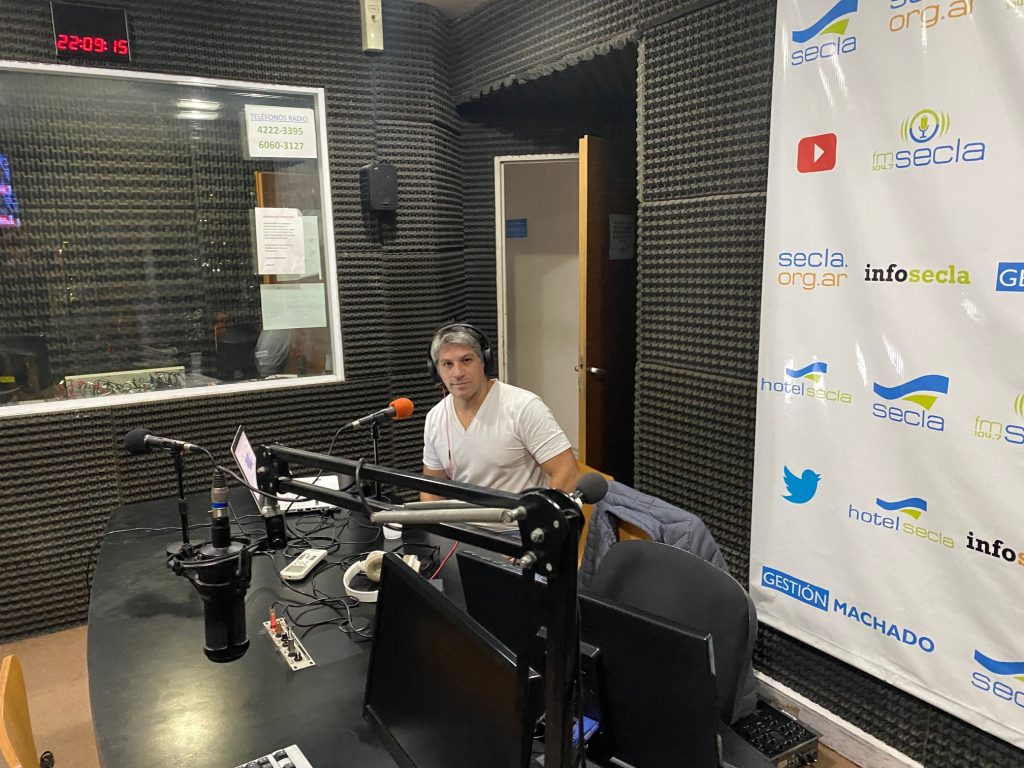
In recent years, we’ve seen how progressive house has taken on unique forms in different parts of the world, but it seems like South America is shaping something truly special in this space. From your perspective, how do you see the evolution of the electronic music scene in South America? There seems to be a contagious energy coming from the continent. Would you say it’s finding its own identity, or is it still heavily influenced by global trends?
I’m pretty critical when it comes to how South American, and especially Argentine, artists tend to imitate styles. Many want to sound like Guy J, copy the trendy labels, or make music just so some big name might play it on their show or live set. And if they get lucky, they often forget where they came from or how they once asked to be played on the radio. They turn into trend-followers with no real identity, and then they don’t last. Many get caught up in the latest sound trends, with poorly mastered, noisy, and compressed tracks. I see them chasing likes on social media and putting the music second. The mass appeal of it all has made it more about posing for the photo than giving the music its own personality.
Unfortunately, a lot of Argentine producers aren’t very supportive of each other—not everyone, but the majority. They’re often quick to criticize, rarely congratulating one another when they achieve success. It’s a shame because that attitude doesn’t build anything, and it only makes them seem antisocial. I don’t see this in places like Mexico, Colombia, Chile, Brazil, Uruguay, the United States, parts of Asia, or Europe, where there’s a lot more mutual support.
On the other hand, there are artists here who are on another level, with their own unique sound and style, like Simon Vuarambon, David Calo, Mike Griego, Fefo, Abity, Golan Zocher, Gux Jimenez, Karlos Elizondo, David Podhel, Matias Larrosa, Santi Mossman, Berni Turletti, Nico Sparvieri, Doffo, Demis Almada, Derk, Paul (AR), and the duo EANP (Nicolas Petracca and Ezequiel Anile). These artists are constantly pushing, searching, and improving their craft.
Since its comeback, Golden Wings Radio has climbed to the top of the game, hosting some of the biggest names in the industry. How did you manage this transformation from a kitchen mixing project to a global heavyweight?
I like that “global heavyweight” line, even if it’s not quite there yet—it sounds nice (haha), say it again, my ego’s awake! I was able to enjoy the transformation, even with the stress that comes from maintaining a quality standard. I grew personally and as a DJ too. Earning respect in our industry isn’t easy. There’s plenty of good music and quality radio out there, but if we were offering just more of the same, it wouldn’t be worth it. That’s why, when we talk about transformation, I believe GWM changed the rules of the game in a way and carved out its place. Everyone who plays on the station does it with respect and love.
How has this journey been for you, and what can we expect in the future?
The journey has been beautiful, filled with music, solidarity, respect, and responsibility, because what may be a hobby for one person can be a livelihood or a moment of divine connection for others.
Our focus is on maintaining high artistic and musical standards; we’re developing a new website, apps, and testing artificial intelligence. We had to adapt to the new forms of communication. In this stage, we’ve given it a local touch, communicating in Spanish and emphasizing that we’re a radio station from Argentina. Before, we did it in English, and I think that’s why we were listened to more in other countries than in my own. Thanks to the addition of Pepe Arias to our team, who is the curator of GWM and someone very influential in social media for the progressive scene, as well as the founder of a follower group for John Digweed and Bedrock, we’ve been able to shift in that direction, unifying our networks, different platforms, and communication channels. It’s been very positive.
This year, we’re participating for the first time as guests at ADE, and we want to be one of the associated brands next year and have a larger role in this great event.
Today, listeners aren’t redirected to a website during a show; they decide when and what to listen to, which is why we’re working on opening GWM to different platforms. But radio will never die, even if listeners prefer different platforms; for DJs, being on the radio is important, or they wouldn’t have radio shows.
Thank you again for the interview! I know it was lengthy, especially in times when people think they don’t have time to read, but I felt it was important to share how a guy like me, somewhere in the world, came up with an idea that turned his frustration into a unique opportunity with something I love.
Tracklisting
Pablo Bolivar, Sensual Physics – Backen Punch (Pedro Capelossi Remix) [Seven Villas Music]
Stelios Vassiloudis – One Man Down (Original Mix) [Default Position]
Tone Of Arc – The Hard Road (Larrosa (AR) x Nico Sparvieri x SACK Reinterpretation)
Sasse – Stelios Vassiloudis – The Z (Original mix) [Bedrock Records]
The Black Atlantic – Fragile Meadow (Rampue Remix) [Vordergrundmusik]
Ingrid Chavez – Justify My Love (Charles Webster Midnight Mix) [Ten Windows Records]
Charlie May – Midnight (Nhar Remix) [emFire]
Flowers And Sea Creatures Wrong Jeremy – The Very Next Day (Adriatique Remix) [My Favorite Robot Records]
Wild Dark – Pleasure People (Original Mix) [Nazca Records]
Nevidomij – The White Shadow FR – The Sky (Original Mix) [Tenampa Recordings]
Carerra Tavares – Ardent [Music is 4 Lovers]
Donato Dozzy – Cassandra (Original Mix) [Claque Musique]
Raxon – Andromena (Original Mix) [Ellum]
Larrosa (AR), Nico Sparvieri, Sack (AR) Overfall (Dove City – Remix) [Golden Wings Music]
C’hantal – The Realm (Auggi+ Edit)
Patch Park – Mutant Marc Marzenit (Haunted House Remix) [Ground Factory Records]
Raxon – Destiny (Original Mix) [Bedrock Records]
Fabrication – Hot Foot (Jamie Stevens – Anthony Pappa Remix) [Recovery Collective]
Daniel Curotto – Mediterraneo (Gai Barone Remix) [Golden Wings Music]
Rockka – Necromancer (Digital Mess Remix) [Mango Alley]
Daniel Curotto – Mediterraneo (East Cafe Balearic Remix) [Golden Wings Music]
Lee Van Dowski Bastian Bux – Nine Lives (Original Mix) [Bedrock Records]
Chris Cargo – Synergy (Framewerk Remix) [If You Wait]
Related
Discover more from Decoded Magazine
Subscribe to get the latest posts sent to your email.


